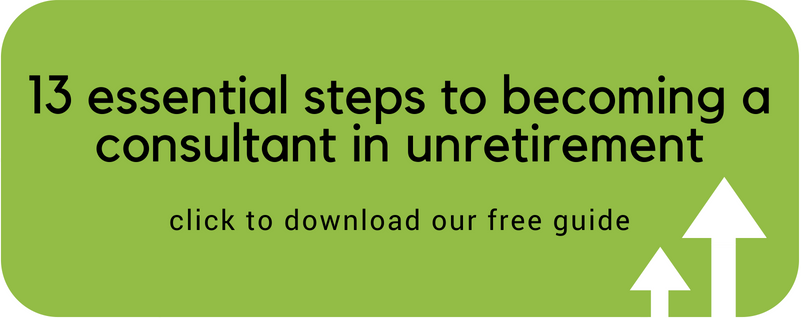Expertise is ageless – apply your skills in an encore career
21 June 2018 By Victoria Tomlinson

Starting a new career after retirement – or in ‘unretirement’ – is a great opportunity to make the most of your lifetime of skills and contacts. The expertise you’ve been building up is ageless and now is the time to capitalise. American author Marci Alboher in this article about encore careers says: “Encore jobs tend to leverage the kinds of qualities that deepen with age.”
The big issue for people starting this next phase of their career is – who wants my skills, where are they and how do I find them?
And the worst part is if you offer your skills and get no response – as seems to happen too often – or you apply for a role and aren’t appointed. Rejection can be a new experience for many at this stage of their lives; they have spent their career being headhunted and not even thinking about ‘selling’ themselves’.
So it can be enormously disheartening if you feel your assets aren’t being put to good use and traditional retirement advice often falls down when it comes to sharing expertise as to how you do use them.
In the words of one of our clients, “I put a lot of time and investment into building my skills and it would be a waste not to use them. I want someone to need me and my skills.”
But in having built this experience and skillset, the danger is to think they are going to be enough for your next stage.
Three steps to staying relevant after retirement
- Ensure you stay up to date with changing law, jargon, general business practice and other trends
- Learn new skills – this could be using LinkedIn to build and engage with new networks; becoming better at technology (or getting into it!)
- Repackage your existing skills – this could be repackaging your executive skills to be relevant to non-executive or trustee roles; refocusing your experience as a consultant – how are your skills relevant as an adviser rather than the person doing the role?
This is also a time to think through what really lights your fire. You may be extremely good at something, but don’t really enjoy it. Think about what makes you feel good, when you get excited or feel a buzz. This is a time to leave behind the things you hate and really focus on what you enjoy.
In all this, learning something new can help to sharpen our minds. It’s well documented that doing something challenging and unfamiliar is more beneficial to cognitive functioning, not to mention good for our overall wellbeing.
Many find this by taking on a number of roles with different elements of learning in each.
Elizabeth Jackson was chief executive of Directorbank before setting up her business, Flowers from the Garden– growing flowers for the wholesale market. She’s also a non-executive director of Northern Ballet which, she says, “satisfies a need to feel useful but I also learn a lot from them, particularly around digital skills.”
Upskill by retraining after retirement

Jo Fletcher-Lee is a good example of thinking about the whole picture of your life, how you are using your skills – and what is being fulfilled.
She currently uses her skills in a wide range of ways. She is a business growth consultant and helps local community projects, she is a qualified horse-riding instructor, keen hillwalker and aspiring mountaineer. But she wanted more:
“When you are a consultant, you are invited into a business but inevitably you aren’t part of those nitty gritty problems that leadership teams work on. You are given defined projects. I missed that aspect of corporate life and wanted to find something where you are problem-solving as part of a team as well as making a difference to society.”
She adds, “I wanted to feel useful and the areas where I felt I could make the most contribution were in education, health and justice – and justice felt the best fit for my skills.”
Jo spent a year undergoing rigorous training as a magistrate because she wanted to put her problem-solving skills to good use but also knew she needed to upskill. The learning process was revealing for Jo, who went through two selection panels and five days’ intensive training to become a magistrate.
“We spent time on issues such as unconscious bias. I like to think of myself as incredibly fair and not someone who is ever biased, but I have come to realise I would struggle with anyone who was cruel to animals – I just can’t understand it. There is a process of self-reflection, it is very challenging but really good to go through.”
Stepping out of your comfort zone
It can be very easy to fall into the trap of thinking you can’t learn new things. And this is unrelated to age.
Step out of your comfort zone after retirement and make an effort to learn something new every week. This could be as simple as mastering a new social media platform or subscribing to someone who writes about topics that you are not familiar with. Stretch yourself or see how your existing skills could be improved.
Every time you think about asking for help with something, see whether you could learn to do it yourself. Make contact with those working in an area that interests you and work out what new skills you might need – and then start updating them.



